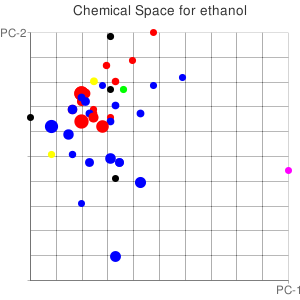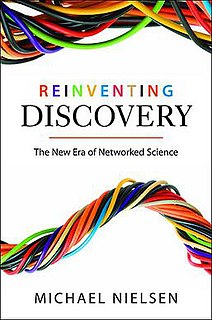 W
WAcademic Torrents is a website which enables the sharing of research data using the BitTorrent protocol. The site was founded in November 2013, and is a project of the Institute for Reproducible Research. The project is said to be similar to LOCKSS but with a focus on "offering researchers the opportunity to distribute the hosting of their papers and datasets to authors and readers, providing easy access to scholarly works and simultaneously backing them up on computers around the world"
 W
WThe Allen Institute for Brain Science is a division of the Allen Institute, based in Seattle, Washington, that focuses on bioscience research. Founded in 2003, it is dedicated to accelerating the understanding of how the human brain works. With the intent of catalyzing brain research in different areas, the Allen Institute provides free data and tools to scientists.
 W
WAllTrials is a project advocating that clinical research adopt the principles of open research. The project summarizes itself as "All trials registered, all results reported": that is, all clinical trials should be listed in a clinical trials registry, and their results should always be shared as open data.
 W
WarXiv is an open-access repository of electronic preprints and postprints approved for posting after moderation, but not peer review. It consists of scientific papers in the fields of mathematics, physics, astronomy, electrical engineering, computer science, quantitative biology, statistics, mathematical finance and economics, which can be accessed online. In many fields of mathematics and physics, almost all scientific papers are self-archived on the arXiv repository before publication in a peer-reviewed journal. Some publishers also grant permission for authors to archive the peer-reviewed postprint. Begun on August 14, 1991, arXiv.org passed the half-million-article milestone on October 3, 2008, and had hit a million by the end of 2014. As of April 2021, the submission rate is about 16,000 articles per month.
 W
WThe Berkeley Initiative for Transparency in the Social Sciences, abbreviated BITSS, is an academic initiative dedicated to advancing transparency, reproducibility, and openness in social science research. It was established in 2012 by the University of California, Berkeley's Center for Effective Global Action. It has worked with the Center for Open Science to define and promote a set of best practices for social scientists to maximize transparency in their research. BITSS has also worked to promote registered reports, supporting journals like the Journal of Development Economics in taking up the review track.
 W
WBlue Obelisk is an informal group of chemists who promote open data, open source, and open standards; it was initiated by Peter Murray-Rust and others in 2005. Multiple open source cheminformatics projects associate themselves with the Blue Obelisk, among which, in alphabetical order, Avogadro, Bioclipse, cclib, Chemistry Development Kit, GaussSum, JChemPaint, JOELib, Kalzium, Openbabel, OpenSMILES, and UsefulChem.
 W
WJean-Claude Bradley was a chemist who actively promoted Open Science in chemistry, including at the White House, for which he was awarded the Blue Obelisk award in 2007. He coined the term "Open Notebook science". He died in May 2014. A memorial symposium was held July 14, 2014 at Cambridge University, UK.
 W
WThe Center for Open Science is a non-profit technology organization based in Charlottesville, Virginia with a mission to "increase the openness, integrity, and reproducibility of scientific research." Brian Nosek and Jeffrey Spies founded the organization in January 2013, funded mainly by the Laura and John Arnold Foundation and others.
 W
WCitizen science is scientific research conducted, in whole or in part, by amateur scientists. Citizen science is sometimes described as "public participation in scientific research", participatory monitoring, and participatory action research whose outcomes are often advancements in scientific research by improving the scientific community's capacity, as well as increasing the public's understanding of science.
 W
WThe Cost of Knowledge is a protest by academics against the business practices of academic journal publisher Elsevier. Among the reasons for the protests were a call for lower prices for journals and to promote increased open access to information. The main work of the project was to ask researchers to sign a statement committing not to support Elsevier journals by publishing, performing peer review, or providing editorial services for these journals.
 W
WCreative Commons India Chapter is the country-level Chapter of Creative Commons in India. It organises online and offline events on various aspects related to open content, Open Educational Resources, Creative Commons licensed publishing and the use of Open Access textbooks in schools.
 W
WData sharing is the practice of making data used for scholarly research available to other investigators. Many funding agencies, institutions, and publication venues have policies regarding data sharing because transparency and openness are considered by many to be part of the scientific method.
 W
WFAIR data are data which meet principles of findability, accessibility, interoperability, and reusability. The acronym and principles were defined in a March 2016 paper in the journal Scientific Data by a consortium of scientists and organizations.
 W
WGalaxy Zoo is a crowdsourced astronomy project which invites people to assist in the morphological classification of large numbers of galaxies. It is an example of citizen science as it enlists the help of members of the public to help in scientific research.
 W
WThe Initiative for Open Citations (I4OC) is a project launched publicly in April 2017, that describes itself as: "a collaboration between scholarly publishers, researchers, and other interested parties to promote the unrestricted availability of scholarly citation data and to make these data available." It is intended to facilitate improved citation analysis.
 W
WThe Journal Article Tag Suite (JATS) is an XML format used to describe scientific literature published online. It is a technical standard developed by the National Information Standards Organization (NISO) and approved by the American National Standards Institute with the code Z39.96-2012.
 W
WPeter Murray-Rust is a chemist currently working at the University of Cambridge. As well as his work in chemistry, Murray-Rust is also known for his support of open access and open data. However, he has also been criticised by Jeffrey Beall for his views on predatory publishers and especially his involvement with publisher MDPI.
 W
WThe Open Notebook Science Challenge is a crowdsourcing research project which collects measurements of the non-aqueous solubility of organic compounds and publishes these as open data; findings are reported in an open notebook science manner. Although anyone may contribute research data, the competition is only open to post-secondary students in the US and UK.
 W
WOpen research is research conducted in the spirit of free and open-source software. Much like open-source schemes that are built around a source code that is made public, the central theme of open research is to make clear accounts of the methodology freely available via the internet, along with any data or results extracted or derived from them. This permits a massively distributed collaboration, and one in which anyone may participate at any level of the project.
 W
WOpenBCI is an open-source brain-computer interface platform, created by Joel Murphy and Conor Russomanno, after a successful Kickstarter campaign in late 2013.
 W
WOpenCitations is a project aiming to publish open bibliographic citation information in RDF. It produces the "OpenCitations Corpus" database in the process.
 W
WOpenNeuro is an open-science neuroinformatics database storing datasets from human brain imaging research studies.
 W
WThe Panton Principles are a set of principles which were written to promote open science. They were first drafted in July 2009 at the Panton Arms pub in Cambridge.
 W
WPreregistration is the practice of registering the hypotheses, methods, and/or analyses of a scientific study before it is conducted. Clinical trial registration is similar, although it may not require the registration of a study's analysis protocol. Finally, registered reports include the peer review and in principle acceptance of a study protocol prior to data collection.
 W
WPublons is a commercial website that provides a free service for academics to track, verify, and showcase their peer review and editorial contributions for academic journals. It was launched in 2012 and was bought by Clarivate Analytics in 2017. It claims that over 200,000 researchers have joined the site, adding more than one million reviews across 25,000 journals.
 W
WReinventing Discovery: The New Era of Networked Science is a book written by Michael Nielsen and released in October 2011. It argues for the benefits of applying the philosophy of open science to research.
 W
WScience Commons (SC) was a Creative Commons project for designing strategies and tools for faster, more efficient web-enabled scientific research. The organization's goals were to identify unnecessary barriers to research, craft policy guidelines and legal agreements to lower those barriers, and develop technology to make research data and materials easier to find and use. Its overarching goal was to speed the translation of data into discovery and thereby the value of research.
 W
WStudierfenster is a free, non-commercial open science client/server-based medical imaging processing online framework. It offers capabilities, like viewing medical data in two- and three-dimensional space directly in standard web browsers, like Google Chrome, Mozilla Firefox, Safari, and Microsoft Edge. Other functionalities are the calculation of medical metrics, manual slice-by-slice outlining of structures in medical images (segmentation), manual placing of (anatomical) landmarks in medical image data, viewing medical data in virtual reality and a facial reconstruction and registration of medical data for augmented reality.
 W
WJohn Wilbanks is the Senior Medical Director at Biogen, and formerly the Chief Commons Officer at Sage Bionetworks. Previously he was a Senior Fellow at the Ewing Marion Kauffman Foundation and at FasterCures. He is known for his work on open science and research networks.